Should You Sweat The Small Stuff? Why Small Savings are Worth the Effort
This website may earn commissions from purchases made through links in this post.
Is it worth worrying about small savings? A dollar here a few cents there? This article shows how small savings can add up to big savings.
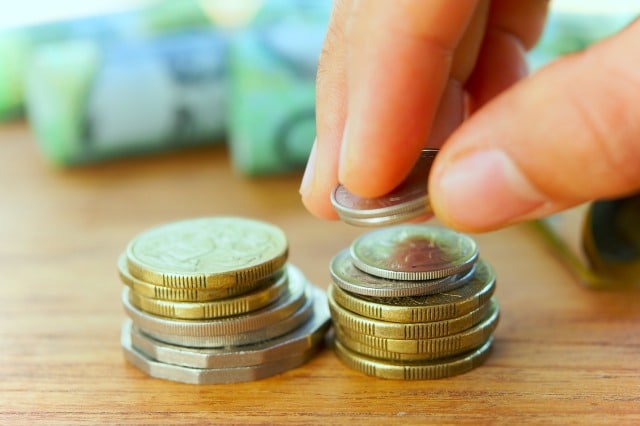
‘Take care of your pennies and your dollars will take care of themselves.’ Scottish Proverb
Is it worth your time and energy to save a few cents here and a couple of dollars there?
I mean, what’s a couple of dollars on a coffee, right?
Not that I’m against a coffee splurge, but it can be surprising just how much these small expenses add up.
If you’re in need of a budget overhaul, or you have savings goals you want to work towards, but there are so many things you could do and you’re feeling overwhelmed, it can be a good idea to…
Start small.
Because small change adds up.
And because small expenses are easier to deal with.
Small change adds up
Here’s a hypothetical example. Just say these are the savings that you decide you can easily make:
| Item | Savings | Monthly Savings |
| Bread | $.50 per loaf @ two loaves per week | $4 |
| Takeaway dinner | 1 less takeaway per month | $25 |
| Daily Coffee | 2 less per week @ $4 each | $32 |
| Magazine subscription | Cut just one subscription | $5 |
| Telephone Bill | Change contract (this was actually our savings when changing contract) | $10 |
| Electricity | General savings ie turning off lights and computers, using dishwasher and dryer less etc | $10 |
| Drive less, walk more | Petrol savings @ $2.50 per week | $10 |
| Clothing | 1 less item per month | $20 |
| Bank fees | Switch to a no-fee account | $5 |
| Monthly Total | $121 |
An extra $121 dollars in the pocket every month isn’t bad and it’s a gain made with fairly easy changes to the way you spend.
(Notice I didn’t say ‘cut out takeaway altogether’, or ‘stop drinking coffee’. These are small, doable changes that can save you a few dollars here and there.)
But here’s the exciting bit:
the total yearly savings is $1,452.
A few small changes can add up to some substantial savings!
Of course, this is just a short example. There are hundreds of expenses where you can shave and save.
Take your lunch to work instead of eating out, drop the Pay TV (or switch to Netflix), join the library instead of buying books, shop second-hand, and drink filtered tap water instead of bottled.
In fact, once you get into the swing of things, you’ll find ways to save money on just about everything you buy. And those savings will add up big time.
When we first became a one-income family, we looked at our budget and thought there was no way we would be able to cut our expenses. Yet we’ve managed to cut them enough so that I don’t have to work and we’ve had a child in the meantime.
[Two children now.]
I can’t believe now, how much we wasted my wage. I work again now that the kids are older, and the experience of living on one wage helped us to save more of my wage now that I’m working again.
Small expenses are easier to deal with
If you’re feeling overwhelmed by the thought of cutting back (where do I start? it’s all too hard? how am I supposed to pay off this huge bill?) then starting small is the answer.
And by small, I mean baby-step small.
‘Groceries’ is too big an expense. Instead, think about how you can save money on bread or toilet paper or breakfast or snacks and each of these small savings will add up to significant grocery savings.
Or, rather than looking at how to save money on electricity, think about saving money on cooking, or boiling the kettle, or heating or when using electronics.
Small savings are easier to deal with. And each small saving adds up over the year. Once you’ve gone through every expense in your budget, one small step at a time, you could potentially save thousands of dollars a year (or in our case, a whole wage).
‘…recast larger problems into smaller, less arousing problems, [so you] can identify a series of smaller controllable opportunities of modest size that produce visible results.’ [source via Pop Economics]
And if you need that extra boost (or you like doing these kinds of exercises) keep an anti-budget of all the little savings you make and all the times you don’t spend money. You will be surprised just how quickly it all adds up.
Finally, to supercharge your savings, couple small savings with some easy big wins and if you put aside what you save, you’ll be on top of your budget in no time.
Other Benefits of Chasing Small Savings
Other reasons to save your pennies include:
There are more opportunities to save small amounts than large amounts. It’s great to save thousands on the purchase of a new car, or hundreds on a new washing machine, but these purchases happen infrequently. The opportunity to make small savings here and there occurs every single day.
It’s easy. Giving the toothpaste an extra squeeze, buying home brand, turning out the light takes little effort.
It is a strategy that is available to everyone. No matter what your circumstances are, anyone can save a few cents or a few dollars here and there. Even the kids can help out!
Combining small savings with compounding increases the payload. Here’s a KEY STRATEGY that people forget: when you save money on something, immediately deposit it into your high-interest savings account or put it towards your debts. Earn money on your money with compounding interest OR save a packet by throwing every last cent at your debts to pay them down faster.
Compounding is a means to increase savings and reduce debt. It is a simple strategy that anyone can put into action, no matter how much money you have.
You’re often saving more than just money. Waste accounts for a lot of our spending. Not wasting the last of the jar or the bottle doesn’t just benefit your hip pocket, it’s a boon for the environment too. The two seconds you take to scrap the last from the jar means one less item that ends up in landfill each year. One less toothpaste. One less sauce bottle. One less shampoo bottle. The waste reduction compounds as well as the financial savings.
Small savings shouldn’t take over your life. But scraping the extra jam from the jar or switching off the TV at the wall or buying home brand isn’t hard or time-consuming, but each of these micro-habits can lead to bigger savings over the course of a year.
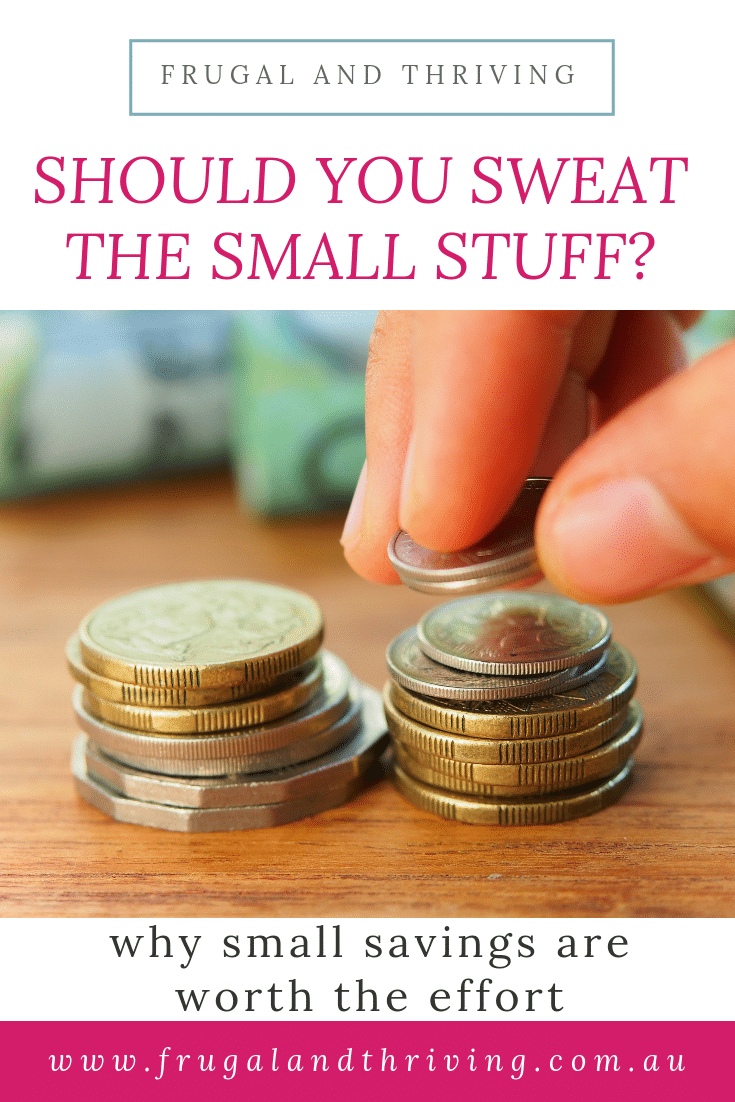



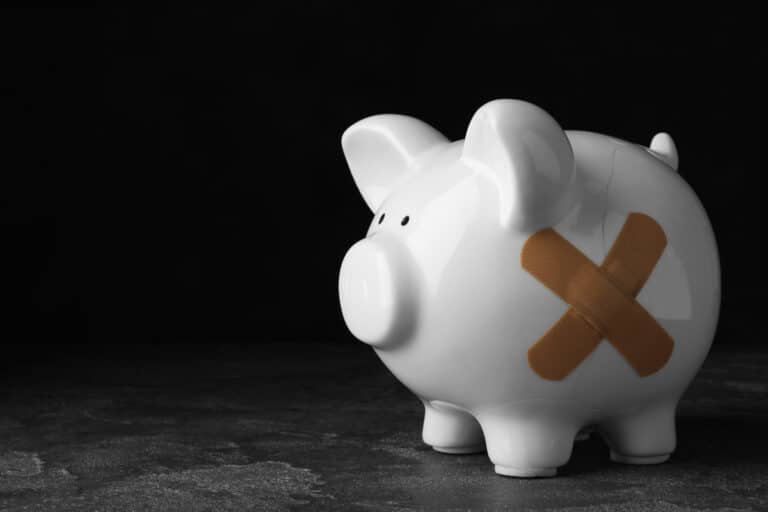
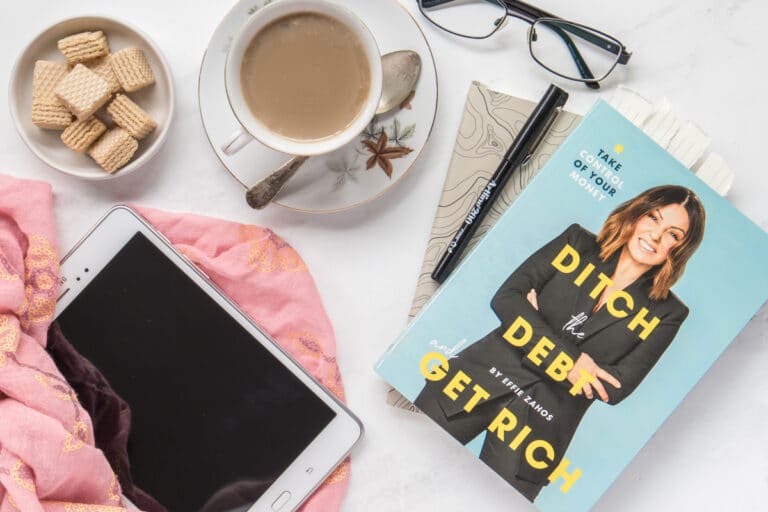
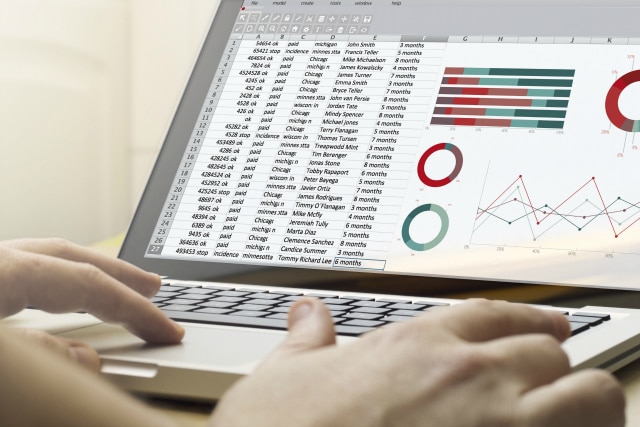
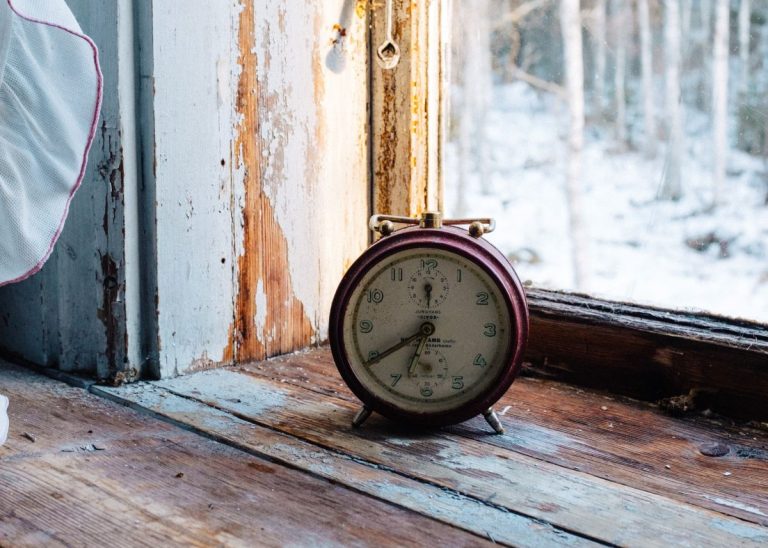
Having spent a life time of ‘trying to be frugal’, I realise how much money was wasted over the years – especially when young and without children. My favourite two money spinners at the moment are turning off everything when we go to bed. Took some talking to convince my husband but he saw the drop in the power bill – not megabucks but still a saving. And my second thing is I fill in an online survery about every 6 weeks and get $5 or it. I stash my $5 until there is $50 or $60 or even once nearly $100. Then I buy food with it – storage. When there are ‘terrific’ specials on sale of something that I can store for months I have the cash. Makes me feel rich! I also put a couple of dollars in a jar each week and that is ‘charity money’. When someone comes to the door or phones I can easily give what my jar has – makes me feel good too.
A penny saved.
In all seriousness i don’t think you need to be able to visualise it buy recording your expenses otherwise you only see the big expences rather than the death by a thousand cuts
‘Telephone Bill Change contract (this was actually our savings when changing contract)’
Reassessing (and cutting back on) telephone/internet plans are one of the no-brainer ways to save money. I’m surprised it took me so long to figure that out!
Great post!! I agree that little bits of money add up over the course of a month, year, etc… it’s how I built up my emergency fund. Slow & steady!
Hi Delphine, I like your idea of a charity jar! Very thoughtful, I’m going to have to copy :).
Ben, I think the death by a thousand cuts is exactly why it’s great to record your expenses, even just for a month or two. We don’t realise how much things ‘add up’ until we write the down and actually do the maths. $5 here, $2 doesn’t seem like much at all until we add them up at the end of the month.
Maybe you mean compared to rent or mortgage etc? What’s the point of saving $50 when I’m paying $1500 on the mortgage? I see your point, but I still think it’s worthwhile to write stuff down. I’m going through stuff for our upcoming garage sale and I had a few magazine subscriptions in my single, cashed up days. $5 a mag doesn’t seem like much, but seeing them all piled up…I reckon I’ve spent at least one plane tickets worth of mags :). And they just sit in the cupboard, read once, now collecting dust.
Hi Mustbethrifty, We’ve held onto more expensive contracts because we ‘couldn’t be bothered’ to change.
Hi Carla, I think we forget the truth of ‘slow and steady’ in an age of ‘now and instant’. Glad to see it’s working well for you emergency fund. It’s something I need to remind myself of a lot.
wow some great tips! My hubby and I have survived for the past 6 years with 2 kids and me as a uni student on a single income with rent to pay AND a mortgage and all the mod-con bills. It is so do-able, we literally do not spend money on ourselves, who cares about new clothes, besides op shopping is fun! We buy and do up old toys, clothes, repair thing, my daughter says mum lets sew this up when most kids I know say get me a new dress. I would not have a uni education if we didn’t learn to be frugal. Doing it because you have to speeds up the learning process to being frugal. Now we are in a position where finally next year we can have savings again. So these are awesome tips.
Hi Lis_a, I’m with you on not caring about new clothes, but I have to admit, I’m not much into op-shopping when it comes to clothes (although I buy some good stuff for the little fella). I love your comment, because that’s part of what frugality is about, saving money to do important things – like go to uni. Thanks for sharing your experience – I love hearing from other frugal people out there and what you do to be frugal!
Melissa, just saw this on twitter. Love your common sense tips. Pinning and retweeting.